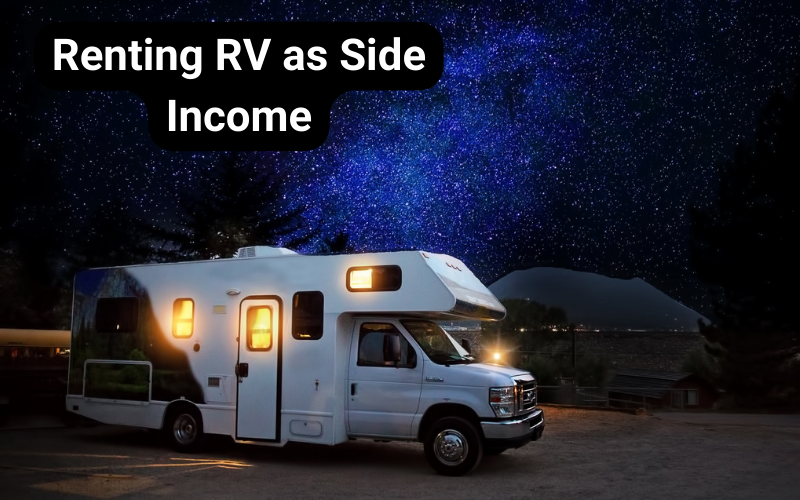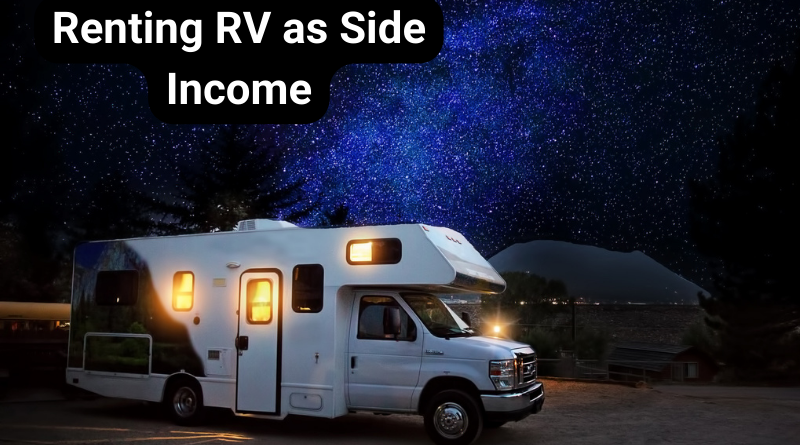Can You Make Money Renting Out Your RV? Pros and Cons
1. Introduction
Renting out your RV has become a popular way to generate extra income, especially with the growing trend of road trips and outdoor vacations. RV owners often find their vehicles sitting idle for long periods, and renting them out can transform these underutilized assets into profitable ventures. This blog explores whether renting your RV is a viable side hustle by discussing the pros, cons, and practical tips to maximize success.

2. The Growing Market for RV Rentals
Increased Interest in Outdoor Travel
The demand for RV vacations has surged as travelers look for safer, socially distanced ways to explore. Families, couples, and adventure seekers are embracing RVs as a flexible and cost-effective alternative to hotels or flights.
Platforms That Simplify Renting
Platforms like Outdoorsy and RVshare make it easy for RV owners to list their vehicles. These platforms handle marketing, booking, and even offer insurance, reducing the complexity of renting out your RV.
Potential Earnings
Earnings vary depending on the type, size, and condition of your RV. For example:
- Smaller camper vans may earn $75–$150 per night.
- Luxury motorhomes can command $200–$500 per night. Renting during peak seasons (e.g., summer and holidays) can significantly boost your income.
3. Pros of Renting Out Your RV
1. Passive Income Opportunity
Your RV can generate income while you’re not using it. Rather than letting it depreciate in storage, you can rent it out to travelers and create a steady revenue stream.
2. High Demand for Unique Travel Experiences
RVs offer a one-of-a-kind travel experience, combining transportation and lodging. This dual functionality makes them attractive to budget-conscious travelers and adventure enthusiasts alike.
3. Flexible Rental Options
You have full control over when to rent your RV. For example:
- Only rent it during peak seasons to maximize earnings.
- Block off dates when you want to use it yourself.
4. Platforms Make It Easy
Rental platforms like Outdoorsy and RVshare simplify the process:
- Built-in Tools: Manage pricing, bookings, and communication from one dashboard.
- Insurance and Roadside Assistance: Many platforms include coverage for accidents, theft, and breakdowns.
5. Tax Benefits
If your RV qualifies as a rental property, you may be able to deduct expenses like maintenance, storage, and insurance on your taxes, further boosting your profitability.
4. Cons of Renting Out Your RV
1. Wear and Tear
Renting out your RV means additional mileage, increased wear, and a higher likelihood of damage. Routine maintenance and repairs are unavoidable, which can cut into your profits.
2. Time and Effort Required
Managing an RV rental isn’t entirely passive. You’ll need to:
- Clean and inspect the RV before and after each rental.
- Respond to renter inquiries and coordinate pick-up and drop-off times.
3. Seasonal Demand
The RV rental market is highly seasonal. While summer and holidays see high demand, off-peak months may result in few or no bookings, making income inconsistent.
4. Insurance and Liability Risks
Although rental platforms provide insurance, there’s always a risk of disputes or accidents. Ensuring comprehensive coverage is critical but may increase costs.
5. Emotional Attachment
If you’re emotionally connected to your RV, renting it out may feel stressful. You’ll need to trust renters to treat your vehicle with care, which isn’t always guaranteed.
5. Key Factors to Consider Before Renting Out Your RV
Type and Condition of Your RV
Luxury motorhomes or well-maintained RVs typically attract more renters and higher rates. Older models may require upgrades or repairs to compete.
Local Demand
Research the popularity of RV rentals in your area. Locations near national parks, campgrounds, or popular road trip routes often see higher demand.
Costs vs. Earnings
Calculate your expenses, including maintenance, cleaning, storage, and platform fees. Compare these to the potential income to ensure renting is profitable.
Rental Platform Fees
Platforms like Outdoorsy charge commissions (usually around 15–20%) on each booking. Understand these fees to accurately estimate your net income.
6. Tips for Successfully Renting Out Your RV
1. Optimize Your Listing
- Use high-quality photos to showcase your RV’s interior and exterior.
- Write detailed descriptions highlighting amenities like Wi-Fi, solar panels, or upgraded kitchens.
2. Screen Renters Carefully
- Vet potential renters using platform tools or direct communication.
- Set clear rules, such as no smoking or pets, to protect your vehicle.
3. Maintain Your RV Regularly
- Conduct routine inspections to ensure the RV is in top condition.
- Address minor repairs promptly to prevent larger issues.
4. Offer Competitive Pricing
- Research similar RVs in your area to set a fair nightly rate.
- Consider offering discounts for long-term rentals or off-season bookings.
5. Leverage Rental Platforms
- Use features like automated messaging to save time.
- Take advantage of included insurance and roadside assistance for peace of mind.
7. Conclusion
Renting out your RV can be a profitable way to generate extra income, especially if you use platforms like Outdoorsy or RVshare to simplify the process. However, it’s important to weigh the benefits of passive income and high demand against the challenges of maintenance, seasonal fluctuations, and potential liability. By planning carefully and managing your rental effectively, you can turn your RV into a valuable income-generating asset.



